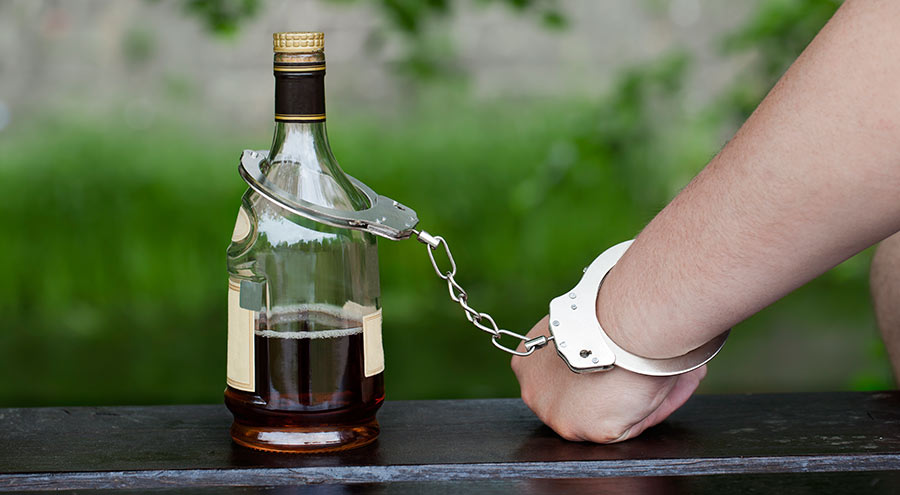Setting Aside a Conviction of First Offense OWI
Under Michigan’s OWI Expungement law, an individual can request expungement of a first offense of Operating While Intoxicated or Impaired by Drugs or Alcohol or any similar violation.

Expungement of an OWI or DUI Conviction in Michigan
Michigan’s OWI expungement law allows individuals with a first-offense OWI or similar offense to petition to set aside their conviction. The applicant must wait five years after their probation ended, sentencing, or release from parole, whichever comes last. An OWI expungement will remove the offense from the applicant’s criminal record. The new expungement law applies to OWI, DUI, OWVI, OWPD, and Zero Tolerance convictions (OWI under 21 years old). An applicant seeking expungement of an OWI conviction must present sufficient proof of rehabilitation efforts.
First-offense OWI convictions are not subject to automatic expungement. Governor Whitmer signed Bills 4219 and 4220, thus creating the opportunity for a first-offense OWI expungement, on August 23, 2021
Michigan Law prohibits driving a motor vehicle with a bodily alcohol content of 0.08 or higher. Driving under the influence (DUI) or operating a vehicle while intoxicated (OWI) carries stiff penalties; however, a first conviction’s consequences should not be lifelong. Immediate consequences might include jail, probation, classes, therapy, community service, and more. This blog provides what you need to know about OWI Expungement Law in Michigan.
Under the OWI expungement law, the statute defines a first offense Operating While Intoxicated as any of the following offenses:
- Operating While Intoxicated (OWI) First (also known as DUI, DWI, and OUI)
- Operating While Visibly Impaired First
- Operating with the Presence of Drugs First
- Operating With Any Bodily Alcohol Content (Zero Tolerance)
- Allowing a Person to Operate a Vehicle Under the Influence
- Operating While Intoxicated or Impaired Due to Illegal Drugs
- Operating While Intoxicated or Impaired Due to Prescription Medication
- Operating with Any Amount of a Schedule 1 Controlled Substance
“Can an OWI be expunged in Michigan?”
Yes, a first offense OWI is expungeable in Michigan. Under Michigan’s Clean Slate legislation, a first-offense OWI can be expunged and completely wiped from your criminal history. Eligible offenses include OWI, OWI High BAC (Superdrunk), Impaired Driving (OWVI), Allowing an Intoxicated Person to Drive, Minor with any BAC, and Operating with the Presence of a Controlled Substance (OWPD).
OWI offenses that you cannot expunge in Michigan include the following:
- OWI Causing Death or Serious Bodily Injury,
- OWI with a Passenger Under 16, and
- any OWI in a commercial vehicle.

“How is regular expungement different than OWI expungement?”
Expungement of a criminal conviction, other than OWI, requires proof that (1) a person’s conduct since their conviction justifies removal of the conviction and (2) that expungement of that conviction is in the public welfare. The judge is permitted to consider the defendant’s conduct from the date of the conviction until the expungement hearing. In addition to these burdens, a person seeking to set aside an OWI/DUI conviction must prove they have sufficiently addressed any alcohol or drug abuse or addiction issue.
In determining whether to grant the petition to set aside a first-offense OWI conviction, the reviewing judge may consider whether the petitioner benefited from rehabilitative or educational programs if the sentencing court ordered any, or whether the petitioner took such steps before sentencing.
“If I haven’t been convicted of any new crimes, can my OWI expungement petition be denied?”
The reviewing judge may deny the expungement motion if the petitioner fails to convince them they have either availed themselves of rehabilitative or educational programming or benefited from their completed rehabilitative or educational programming. It is essential to compellingly and credibly present all therapeutic and educational measures taken to maintain sobriety. A lawyer will know what documents and exhibits are required to prove you’ve done a satisfactory amount to justify removing the conviction from your criminal history.

The Five-Year Waiting Period to Expunge an Impaired Driving Charge
The five-year waiting period referenced above starts after the applicant is released from probation or parole or after sentencing, whichever comes last. There cannot be any criminal convictions during the five (5) years. If the applicant was convicted of a crime during that 5-year waiting period, the period starts over as of the date of the new conviction. Also, there cannot be any pending criminal charges.
Setting Aside an OWI Conviction Will Be Challenging
Before February 19, 2022, Michigan had never permitted OWI expungements. Applicants can expect extraordinary resistance from judges considering applications to set aside a first offense operating while intoxicated. Mothers Against Drunk Driving (MADD) strongly opposed the Michigan OWI expungement law, and judges, who are elected officials, are strongly influenced by political pressures. Furthermore, most Michigan judges tend to have strong personal preferences in OWI cases that will cause them to treat these matters with extreme cynicism. The section of the statute that permits the judge to deny the petition, “if it is not convinced that the petitioner has either availed themselves of rehabilitative or educational programming or benefited from rehabilitative or educational programming they have completed,” will be heavily relied upon by judges when refusing to grant expungements in these cases.

How to Win Michigan OWI Expungement Cases
To succeed under Michigan’s OWI expungement law, the keys to success will be thorough planning, meticulous preparation, persuasive and credible evidence, and zealous representation. Because judges are predisposed against granting relief in these cases, attorneys with outstanding reputations, experience, and a track record of success will stand the best chance of success. The judge will consider whether the petitioner benefited from rehabilitative or educational programs. Information regarding the applicant’s rehabilitation relative to alcohol and controlled substances, if any, is a delicate topic that an attorney must argue persuasively and credibly.
“How does a judge decide whether to grant an OWI expungement?”
Judges generally consider several factors under Michigan’s OWI expungement law when deciding whether to grant an expungement. Here are some of the common factors:
- Eligibility: The petitioner must be eligible for expungement under the law, which typically requires completing their sentence, including probation or parole, and have not committed any new crimes since.
- Criminal history: The judge may consider the petitioner’s criminal history, including the severity of the offense and whether it was a non-violent or minor offense.
- Time since conviction: The judge may consider how much time has passed since the conviction, as a more extended period may indicate rehabilitation and a reduced likelihood of reoffending.
- Rehabilitation and conduct since conviction: The judge may consider whether the petitioner has demonstrated rehabilitation and good conduct since their conviction, such as holding down a steady job, participating in community service, and maintaining a clean criminal record.
- Impact on the petitioner: The judge may consider the potential impact that the criminal record has on the petitioner’s employment, education, housing, and other aspects of their life.
- Public safety: The judge may consider whether granting an expungement would pose a risk to public safety, including whether the offense was violent or involved a weapon.
- The petitioner’s arguments: The judge will also listen to the petitioner’s and their attorney’s arguments, including the reasons why expungement is necessary and the petitioner’s plans for their future.
- The government’s objections: The judge will consider the prosecutor’s objections to OWI expungement under Michigan law. Prosecutors often oppose first-offense Operating While Intoxicated expungement based on public policy and due to political pressure from groups like MADD. A top defense lawyer must overcome any objections by the government.
Ultimately, the judge’s decision to grant an OWI First Offense expungement is up to their discretion. They will consider all relevant factors to determine whether an expungement is appropriate.

The Benefits of OWI Expungement in Michigan
Having a conviction expunged from your criminal history can provide several benefits, including:
- Improved Employment Opportunities (better jobs, higher income): Expunging a criminal conviction can significantly improve your chances of getting a job. With an expunged record, potential employers will not have access to your criminal history, and you will not be required to disclose any information about the expunged conviction.
- Better Housing Options: Expungement can also increase your chances of getting approved for rental housing. Landlords and property managers often run background checks on prospective tenants, and having a criminal record can negatively impact your rental application. With an expunged record, your chances of getting approved for housing will be significantly higher.
- Restoration of Rights: Depending on the nature of the conviction, expungement can help restore some of your rights. For example, if you have a felony, expunging your record may allow you to serve on a jury and possess firearms. The prohibition from entering Canada with an OWI might be removed following an OWI-first expungement. Also, an expungement might result in renewed eligibility for student loans or financing opportunities.
- Improved Personal Life: A criminal record can make obtaining credit, loans, and other financial services challenging. An expungement can help you rebuild your personal and financial life, significantly reducing the stress and anxiety that can come with a criminal record.
- Peace of Mind: Finally, expunging a criminal conviction can give you closure and peace of mind. You will no longer have to worry about the negative impacts of a criminal record on your life, and you can move forward with a fresh start.
- Better Insurance Rates: Insurance companies frequently consider an applicant’s criminal history when determining insurance rates. An expungement can drastically reduce your rates and save you thousands of dollars in unnecessary fees.
- Eligibility for a Concealed Pistol Permit: If an OWI first conviction prevents you from obtaining a CPL, an expungement can resolve that issue.

OWI Expungement Attorneys in Michigan
The OWI Expungement Team with LEWIS & DICKSTEIN, P.L.L.C. has decades of experience winning felony and misdemeanor expungement cases in courts throughout Michigan. Our attorneys routinely win controversial motions and verdicts that other lawyers believed had no chance of success. Our team accomplishes results unknown to less experienced and general practice lawyers by utilizing a unique, effective team approach. As we always say, “When you walk into the courtroom with one of our lawyers, you enter the room with the collective reputation of all of our attorneys.” Although expungements of OWI convictions in Michigan are relatively new, our seasoned veteran lawyers are consistently successful in court with similarly complex and challenging circumstances. We will find a way to help you!
Call us today at (248) 263-6800 for a free consultation or complete an online Request for Assistance Form. We will contact you promptly and find a way to help you.
We will find a way to help you.
We Are Not Afraid to Win!
Other Expungement Topics to Explore
FAQ – Michigan OWI Expungement
What are the benefits of expunging a DUI? Removing a DUI through expungement is beneficial. An officer who stops someone for a traffic violation will not give a warning to someone with a DUI conviction in most cases. Removal of a DUI can lower car insurance. Although a DUI doesn’t disqualify you from most employment, such a conviction can be a “behind-the-scenes” reason for denying employment or promotion.
How long does an OWI stay on your record in Michigan? Without an expungement, an OWI is permanent on someone’s criminal history. A second or subsequent OWI conviction is permanent.
Why is expungement important? Expungement gives a law-abiding person the ability to clear their criminal history. Good people make mistakes. The expungement law recognizes that people can change for the better. By following the law and ensuring that any alcohol or drug issues are under control, courts can clear an OWI conviction from someone’s record.
What is the purpose of expungement? According to Michigan’s legislature, expungement aims to incentivize people with a criminal history to live a productive, law-abiding life. A conviction expunged and removed from someone’s criminal record will no longer impede obtaining employment or advancing in a career. The OWI expungement law allows a person to get a second chance without a criminal history.
What’s worse, OWI or DUI in Michigan? Technically, Michigan has no offense corresponding to the DUI acronym (Driving Under the Influence). The correct acronym for Michigan’s Operating While Intoxicated Offense is OWI. The lesser offense to OWI is OWVI or Operating While Visibly Impaired.
How many points is an OWI in Michigan? A conviction for OWI carries 6 points. An OWVI conviction carries 4 points.
What is the difference between OWI and DUI? Again, DUI is not an offense in Michigan. The difference between OWI and OWVI is the level of intoxication. The driver’s bodily alcohol content must be greater than 0.08 or substantially under the influence for an OWI conviction. For OWVI, the issue is whether an ordinary person could tell that the driver’s ability to operate their car was affected by their alcohol consumption or drugs.
Does an OWI stay on your criminal record? An OWI is permanently on your record in Michigan unless you get an expungement. A first-offense OWI is expungeable if the defendant can prove they meet the statutory burden and any alcohol or drug problem is under control.
Does an expunged OWI stay on your driving record? Yes. A judge cannot remove an OWI from your driving record.
How bad is an OWI in Michigan? An OWI is serious, and you should not take it lightly. A person convicted of OWI can have a permanent record, will not get breaks from police at traffic stops, might lose employment or promotions, can lose custody in a divorce, be dropped from automobile insurance, lose a professional license, get rejected from college, or post-graduate education, and more.
Is an OWI better than a DUI? No, they are the same.
Who qualifies for expungement? Assuming no injury or death resulted from the offense, anyone with one OWI on their record may be eligible for expungement. You must have no more than one conviction, wait five (5) years from sentencing, and have no new arrests or convictions within five (5) years of the hearing. Additionally, the OWI must not have been in a commercial vehicle, and there must not have been a minor in the car.
What is the OWI expungement process like, and how long does it take?
The expungement process can be lengthy and complicated. The request to set aside the OWI conviction is complicated. The petitioner must file it with a certified copy of the conviction, a notarized application, and their officially obtained fingerprints. The petitioner or their lawyer must submit copies of everything to the assigned prosecutor, the Attorney General, and the Michigan State Police. Finally, you must request a hearing, file a praecipe (in most courts), prepare a notice of hearing and proof of service, and attend a contested hearing before a judge.
Do I need an attorney to clear my record? This lengthy, involved process requires a skilled criminal defense lawyer if you want to maximize your odds of winning. If you try on your own and make a mistake, there is a three-year waiting period until you can file a new application. A seasoned defense lawyer knows the process, documents, and evidence necessary to win. If you hire an established law firm, the staff will guide you and assist you with obtaining all of the required proof of rehabilitation.







